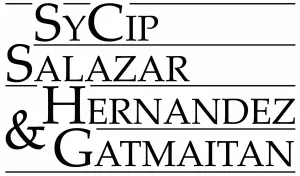Concepts such as "circular economy", "plastic neutrality", and "sustainable consumption and production" became part of Philippine statutory law with the enactment of Republic Act No. 11898 or the Extended Producer Responsibility Act of 2022 (the "EPRA"). Extended Producer Responsibility ("EPR") refers to the environmental policy approach and practice that requires producers to be environmentally responsible throughout the life cycle of a product, especially its post-consumer or end-of-life stage. The EPRA requires product producers (which includes brand owners and product manufacturers) to recover up to 80% of their plastic packaging waste by 2028. Product producers obliged to implement EPR are those enterprises that generate plastic packaging whose total value of assets exceeds PhP100 million waste. Micro, small, and medium enterprises are not covered by the EPRA but are encouraged to practice EPR voluntarily.
Obliged enterprises must establish or phase-in EPR programs for the effective management of plastic packaging waste, through reduction of non-environment friendly products and product waste recovery programs. The EPR programs must be established within six months from the effectivity of the EPRA, and registered with the National Solid Waste Management Council ("NSWMC"). Obliged enterprises must establish audit systems to determine compliance with the EPRA and their own EPR programs. The audit must be conducted by an independent third-party auditor in line with uniform standards to be promulgated by the Department of Environment and Natural Resources ("DENR"). Certified reports on plastic product footprint generated and recovered by obliged enterprises will be made available to the public through the website of the DENR.
Obliged enterprises may opt to organize themselves to form or authorize a Producer Responsibility Organization) for the purpose of establishing a viable platform for the implementation of their respective EPR programs.
To motivate the development of an effective solid waste management, the EPRA provides incentives, namely: (i) cash and/or non- cash rewards and/or recognitions; (ii) tax incentives; and (iii) deductibility of EPR expenses for income tax purposes.
An obliged enterprise that fails to register its EPR program with the NSWMC may be penalized with a fine ranging from PhP5 million to PhP20 million, and automatic suspension of business permit on its third offense. On the other hand, obliged enterprises that fail to meet the targets for the recovery of plastic product footprint may be ordered to pay the above mentioned fines or a fine twice the cost of recovery and diversion of the footprint or its shortfall, whichever is higher.
The Philippines joins countries such as Japan, Australia, and some states in Europe and Latin America that have institutionalized EPR to hold plastic producers accountable for their plastic waste. It is a significant step for the Philippines, which at present is the third-ranking contributor to plastic pollution in the world, producing at least 2.7 million metric tons of plastic waste every year.
The content of this article is intended to provide a general guide to the subject matter. Specialist advice should be sought about your specific circumstances.

